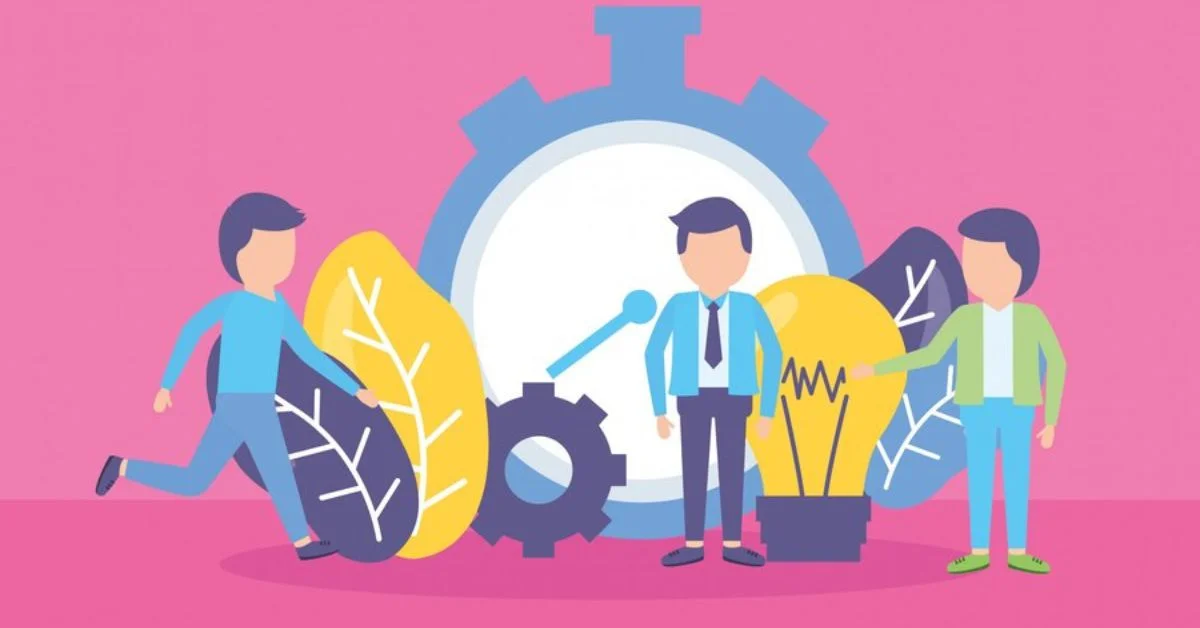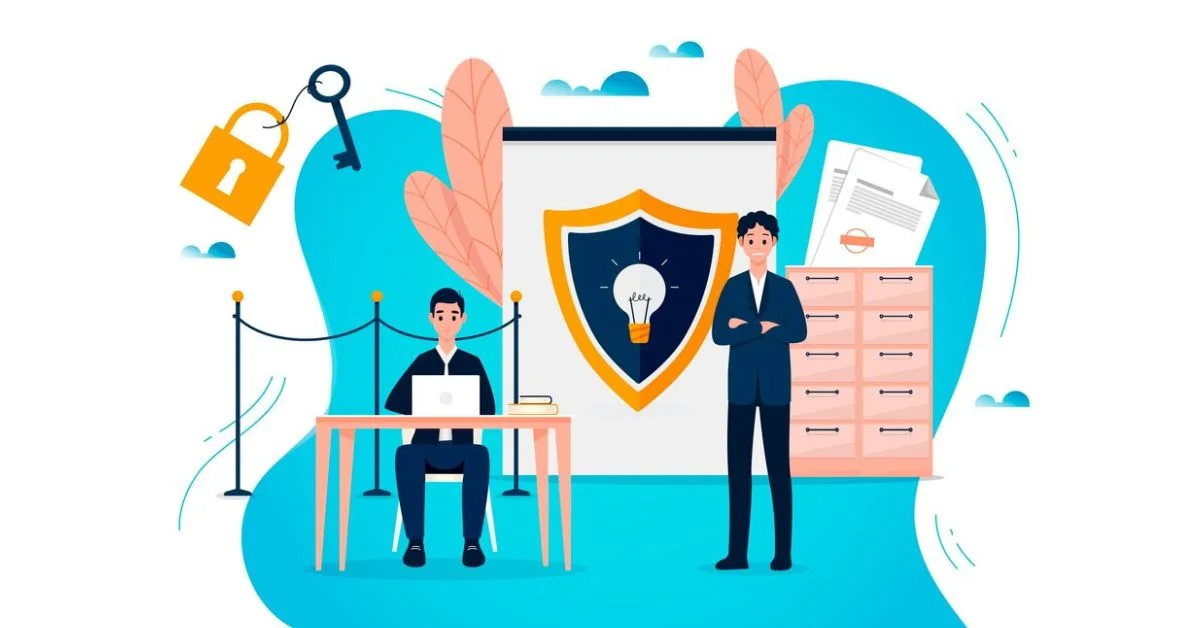EDUCATION
The Essential Toolkit: Skills Every Employee Needs to Thrive

In today’s rapidly evolving workplace landscape, the key to success lies not only in technical expertise but also in possessing a versatile set of skills that enable employees to adapt, collaborate, and innovate. As the demands of the modern workplace continue to shift, individuals must cultivate a diverse toolkit of essential skills that can help them navigate challenges, drive productivity, and thrive in their careers.
In this blog post, we’ll explore some of the fundamental skills that every employee should prioritize developing to excel in the professional world.
1. Communication Skills
Effective communication lies at the heart of every successful interaction, whether conveying ideas, collaborating with colleagues, or addressing conflicts. Employees who can articulate their thoughts clearly, listen actively, and tailor their communication style to different audiences are invaluable assets to any organization.
From writing concise emails to delivering persuasive presentations, honing communication skills is essential for building strong relationships, fostering teamwork, and driving business objectives forward.
2. Adaptability
In today’s fast-paced and ever-changing work environment, adaptability is a non-negotiable skill. Employees who can quickly pivot in response to shifting priorities, new technologies, or unexpected challenges are better equipped to thrive amidst uncertainty.
Cultivating a mindset of adaptability involves being open to learning new skills, embracing change, and remaining resilient in the face of adversity. By staying flexible and agile, employees can not only weather turbulent times but also seize opportunities for growth and innovation.
3. Critical Thinking
Critical thinking is analyzing information, evaluating alternatives, and making informed decisions. In an era inundated with data and information overload, employees who can discern relevant insights, identify patterns, and solve complex problems are invaluable assets to their organizations.
By honing critical thinking skills, employees can approach challenges with a strategic mindset, generate innovative solutions, and drive continuous improvement.
4. Collaboration
Collaboration is the cornerstone of teamwork and organizational success. In today’s interconnected world, employees rarely work in isolation but rather as part of cross-functional teams that span geographical boundaries and cultural differences.
Strong collaboration skills involve not only contributing effectively to team projects but also fostering a culture of inclusivity, empathy, and respect. By leveraging the diverse perspectives and expertise of their colleagues, employees can achieve collective goals more efficiently and effectively.
5. Time Management
Time management is the art of prioritizing tasks, setting goals, and allocating resources efficiently to maximize productivity. In a world where time is a finite and precious resource, employees who can manage their workload effectively are better positioned to meet deadlines, avoid burnout, and maintain work-life balance.
By mastering time management techniques such as setting SMART goals, prioritizing tasks, and minimizing distractions, employees can optimize their productivity and achieve greater success in their roles.
6. Emotional Intelligence
Emotional intelligence, or EQ, is the ability to understand and manage emotions, both in oneself and in others. In the workplace, employees with high emotional intelligence are better equipped to navigate interpersonal dynamics, resolve conflicts, and build strong relationships.
By cultivating self-awareness, empathy, and social skills, employees can foster a positive work environment, enhance team cohesion, and drive collaboration.
7. Resilience
Resilience is the capacity to bounce back from setbacks, adapt to change, and persevere in the face of adversity. In today’s volatile and uncertain world, resilience is a valuable asset that enables employees to overcome challenges, learn from failures, and emerge stronger than before.
By developing a growth mindset, cultivating optimism, and practicing self-care, employees can build resilience muscles that empower them to thrive in the face of adversity.
In Summary
Contemporary workplaces necessitate a comprehensive array of vital skills beyond technical proficiency. These competencies empower employees to navigate, collaborate, and innovate within dynamic settings. By emphasizing enhancing communication, adaptability, critical thinking, collaboration, time management, emotional intelligence, and resilience, individuals can strategically position themselves for success and advancement in their professional journeys.
As the corporate landscape undergoes continual transformation, investing in developing these indispensable skills through corporate learning services not only bolsters individual growth but also enhances the overall effectiveness and competitive edge of organizations on the global stage.
EDUCATION
Inside the Scrubs: Nurse’s Journey

Nursing is a dynamic and rewarding profession that demands a great deal of compassion, technical skill, and resilience. Every day, nurses face challenges ranging from managing patient care to keeping up with rapid advancements in medical technology. An integral step in this journey is passing the National Council Licensure Examination (NCLEX), a pivotal exam that assesses a nurse’s readiness to practice safely and effectively.
The Path to Becoming a Nurse
To embark on a nursing career, individuals must first complete an educational program suited to their career goals. Options include a diploma in nursing, an Associate Degree in Nursing (ADN), or a Bachelor of Science in Nursing (BSN).
Each pathway offers a unique blend of practical training and theoretical knowledge. For those aiming for a comprehensive education with better long-term career prospects, a BSN is advisable, as it opens doors to advanced practice roles and higher earning potential.
The NCLEX is crucial for obtaining licensure as a registered nurse (RN) or licensed practical nurse (LPN). This exam tests candidates on their knowledge and ability to make sound clinical judgments in various healthcare scenarios. Using NCLEX exam questions during study preparation can help candidates familiarize themselves with the types of scenarios they may encounter. The latest updates to the NCLEX focus on enhancing the assessment of clinical judgment skills, ensuring that nurses are well-prepared to meet the demands of modern healthcare settings.
Daily Life of a Nurse
Nurses often begin their day by checking patient charts and planning care routines. Depending on their workplace, such as a hospital, clinic, or community center, the specifics of these routines can vary significantly. Tasks typically include administering medications, collaborating with other healthcare professionals, and providing direct patient care through assessments and treatments.
Nursing can be physically demanding and emotionally draining, often requiring long hours and the ability to manage high-stress situations. However, the profession is also incredibly rewarding, offering the chance to make a significant impact on patients’ lives daily. Nurses often cite the personal connections with patients and the satisfaction of knowing they are making a difference as key rewards of their profession.
Key Skills and Qualities of Successful Nurses
Successful nurses embody a mix of hard and soft skills that enable them to handle the diverse demands of the healthcare field effectively.
Essential Skills
- Clinical Competence: Proficient in performing medical procedures and delivering patient care based on the latest health standards.
- Critical Thinking: Ability to make quick, informed decisions regarding patient care.
- Communication: Strong verbal and written skills for effective interaction with patients, families, and healthcare teams.
Personal Qualities
- Compassion: A deep empathy for patients and their conditions.
- Resilience: The strength to cope with challenging situations and emotional stress.
- Adaptability: Flexibility in handling the unpredictable nature of healthcare settings.
Advancement and Specialization Opportunities
Nurses have vast opportunities to advance their careers by specializing in different fields of medicine. Specialties like pediatrics, oncology, geriatrics, and critical care require specific skills and knowledge that are typically gained through further education and clinical experience.
Continuing Education and Certifications
Continuing education is crucial for nurses looking to advance in their careers. Additional certifications in areas such as acute care, anesthesia, or family practice not only expand a nurse’s skill set but also improve their career prospects and potential earnings.
Nurses have access to a wide array of resources that support their professional growth and well-being. Organizations such as the American Nurses Association (ANA) and the National League for Nursing offer networking opportunities, professional development, advocacy, and up-to-date industry information.
Many institutions and professional bodies offer courses that help nurses stay current with medical advancements and maintain licensure.
Support from colleagues through mentorship programs and online communities can provide emotional backing and career guidance.
NCLEX Preparation Resources
Free NCLEX practice tests are invaluable resources for graduates preparing for licensure. Websites like MedicalHero.com offer practice questions and simulations that mimic the format and rigor of the actual exam. By leveraging these skills, opportunities, and resources, nurses can not only thrive in their current roles but also pave the way for future advancements in their careers.
LAW
Strategic Trust Planning for Fortified Asset Protection

Table of Contents
- Key Takeaways
- Comprehensive Overview of Asset Protection Trusts
- Deciphering the Legal Framework Surrounding Trusts
- Best Practices for Establishing Trusts
- Selecting the Right Assets for Your Trust
- Additional Advantages of Trust Formation
- Navigating the Considerations and Limitations of Trusts
- Why Professional Advice is Critical in Trust Management
- The Lasting Significance of Trusts in Asset Management
Key Takeaways
- Trusts are practical tools for creating a barrier against creditors and safeguarding your assets.
- Tailoring your trust according to state-specific laws and asset types is necessary for it to serve its purpose fully.
- While trusts provide numerous benefits, they also have certain restrictions that must be prudently evaluated.
- Professional legal and financial advice is paramount in navigating the complexities inherent in trust management.
Comprehensive Overview of Asset Protection Trusts
Domestic Asset Protection Trusts strike a balance between asset protection and flexible control. Adequate asset protection is proactive and comprehensive. A solid plan can ensure that assets remain secure under the trust’s guidelines. Robust asset protection strategies integrated with estate planning goals can achieve comprehensive security for financial legacies.
Deciphering the Legal Framework Surrounding Trusts
Trusts are legal arrangements that protect assets. To be effective, they must comply with complex laws that vary across states and change over time. A trustee with expertise and integrity plays a critical role in managing trusts, balancing compliance with legal requirements, and managing assets. The most important thing is that the trustee’s actions aim to preserve and enhance the value of the trust assets for the beneficiaries.
Best Practices for Establishing Trusts
Building trust requires a personalized approach considering an individual’s financial situation and goals. Choosing the right trust and accurately funding it is crucial for its effectiveness. Trusts must adhere to legal standards and be executed correctly, requiring the guidance of legal professionals. Mistakes in the trust creation process can have severe consequences, emphasizing the need for thorough preparation and compliance with legal requirements.
Selecting the Right Assets for Your Trust
A customized strategy is required to protect various assets through a trust. This strategy should cater to the specific protection needs of each asset type. Transferring assets into a trust should be approached carefully to ensure adequate protection within the trust’s structure.
Additional Advantages of Trust Formation
Trusts offer advantages for financial and estate planning. They protect assets, minimize estate taxes, maintain family privacy, and control wealth distribution. Trusts provide peace of mind by reducing administrative burden and ensuring that the legacy left behind reflects the grantor’s intentions for their family’s future.
Navigating the Considerations and Limitations of Trusts
Trusts offer benefits but also have limitations. Laws restrict access and control over trust assets, which may be challenging for those used to manage assets directly. Trusts may have stipulations on distributions, investments, and beneficiary rights, which should align with the grantor’s goals. Irrevocable trusts offer protection but require the grantor to relinquish control over assets. Finding the right balance between power and safety is crucial when considering an irrevocable trust as part of an asset protection strategy.
Why Professional Advice is Critical in Trust Management
Trust law is complex and requires expert guidance for trusts and estate planning. Professionals in this field ensure compliance with legal statutes, protect assets, and meet wealth management goals. Their advice is essential for drafting the trust document, selecting a trustworthy trustee, and strategically funding the trust.
The Lasting Significance of Trusts in Asset Management
Trusts are essential for wealth preservation and estate planning. Domestic Asset Protection Trusts provide specialized security for individual needs and long-term objectives. Trusts offer a regulated structure for managing wealth with foresight and intention. Although complex, a well-devised trust strategy can be highly beneficial. Professional expertise and strategic planning can turn trusts into a cornerstone of financial resilience and legacy building.
LAW
A detailed guide on Tax refund for tourists’ schemes in the UAE

While staying in the UAE, tourists have the opportunity to claim a refund on the Value Added Tax (VAT) for goods they purchase. This initiative was elucidated by the Federal Tax Authority in 2018. This article serves as a detailed guide on the VAT refund schemes available to tourists in the UAE.
Whether you are a visitor exploring the country or delving into business and career prospects, seeking assistance from VAT Registration UAE’s tax experts is always advisable. The VAT refund process for tourists in the UAE operates through an electronic system, which was established following the implementation of VAT by the FTA.
It is important to note that this refund scheme solely pertains to traders registered under the “Tax Refund for Tourists Scheme.” Only those affiliated with this scheme are eligible to receive VAT refunds. Understanding the procedure for claiming a VAT refund for tourists in the UAE, as well as how travellers can retrieve VAT payments from their accounts, is essential.
The implementation of the tax refund for tourists in the UAE
The tax refund system for tourists in the UAE is subject to particular conditions that dictate when and how refunds can be claimed. These conditions outline the eligibility criteria and important dates for refund requests:
- The retailers participating in the Scheme will be required to initiate refund claims to tourists as of 18th November 2018.
- The overseas tourists can claim their VAT refunds at Abu Dhabi International Airport, Sharjah International Airport or Dubai International Airport as of 18th November 2018.
- Lastly, overseas tourists also have the option to claim their VAT refunds at the land ports and seaports, applicable as of 16th December 2018.
Purchase procedures applicable for VAT refund for tourist schemes in the UAE
The purchase procedure is as follows when a customer intends to purchase from the retailer under the tax refund for tourist schemes:
- Whenever a retailer gets a purchase request from a tourist under the tourist refund scheme, the retailer must perform a check for the following eligibilities: –
- According to clause 3 of Article 68 of the Cabinet Decision No. 52 of 2017 referred thereto, the client is an Overseas Tourist who was present in the State at the time of the Goods purchase and who is present at the retail establishment with purchase receipts.
- When asking for a refund claim form to be issued. The retailer should also ensure that the supply of goods was made within 90 days, not exceeding 90 days from when the issuance of refund documents was requested.
2. The customer and purchase details must be maintained per the details specified by the FTA and the Operator.
3. The required documents must be issued to the customer to claim their VAT refund on exporting the goods.
4. Depending upon the requirement of some goods and their categories, the retailer must ensure that the goods are packed well to ensure smooth handling and delivery to the customer in their home country.
5. Any other conditions, if the retailer should also meet any, to ensure accordance with the agreement approved by the retailer for providing a tax tax-free purchase service.
For any further queries relating to the purchase requirements for tax refunds for tourist schemes in the UAE, you must contact the tax consultant in dubai for their invaluable guidance and support.
Export procedures to be adhered to by the operators for tax refunds for tourist schemes in the UAE
The operators of the tax refund schemes for tourists must ensure that the tourists claiming the refund are for the goods that have been exported within 90 days from the date of supply. If not, then the refund claims must be rejected. He is also supposed to verify that the exported goods and the refund claim align with the criteria the authority agreed upon. Also, if the authority has consented, the Operator can appoint a third party to verify on his behalf. VAT consultants in the UAE are always for any assistance at your service.
Applicable fees and refunds under the tax refund for tourist schemes in the UAE
The authority has been allowed to charge a service fee to the overseas customers as follows-
- An administrative fee of 15% of the total VAT refund amount claimed.
- A fixed fee of AED 4.80 per refund claim.
The Operator can also deduct the fee from the amount that the overseas tourist is supposed to get back as a refund from the FTA. The point to note here is that the cash VAT refund amount will have a cap of AED 10,000 per tourist per day (24 hours).
Also, When an Overseas Tourist claims a refund from a Taxable Person, the tax will not be reimbursed under the Scheme for any claim if the value of the tax-inclusive purchases made from that Taxable Person is not AED 250 or higher.
Any doubts related to fees can be clarified through VAT consultants in the UAE.
Goods that do not fall under the tax refund schemes in the UAE
The following goods are not included in the refund scheme for tourists in the UAE
- The goods or items not carried by the tourists when they leave the country.
- The goods that have been consumed fully or partially in the state of any other implementing state.
- Motor vehicles, aircraft and boats.
Considering the above points, the tourist tax refund guide might look complicated to the visitors. Therefore, they must find some tax consultants in the UAE who can help them solve their queries and guide them in claiming their refund. They will also help you identify the goods eligible for tax refunds under this Scheme.
Engage the Expert Services of VAT Registration UAE
The tax consultants and VAT experts in the UAE, accessible through VAT registration UAE, stand ready to assist you in claiming VAT refunds should you decide to depart the UAE following your vacation. Reach out to us today to gain clarity on the VAT refund process in the UAE, including how tourists can seek refunds on purchases made during their stay. Thus, contact us today and we shall be glad to assist you.

 TECHNOLOGY4 months ago
TECHNOLOGY4 months agoBlog Arcy Art: Where Architecture Meets Art

 ENTERTAINMENT2 weeks ago
ENTERTAINMENT2 weeks agoExploring the Kristen Archives: A Treasure Trove of Erotica and More

 LIFESTYLE4 months ago
LIFESTYLE4 months agoThe Disciplinary Wives Club: Spanking for Love, Not Punishment

 LIFESTYLE2 weeks ago
LIFESTYLE2 weeks agoWho Is Sandra Orlow?

 GENERAL3 days ago
GENERAL3 days ago5 Factors That Affect Tattoo Removal Success

 ENTERTAINMENT8 months ago
ENTERTAINMENT8 months agoYuppow: Your Free Source for Movies and TV Shows

 ENTERTAINMENT1 week ago
ENTERTAINMENT1 week agoKiss KH: The Streaming Platform Redefining Digital Engagement and Cultural Currents

 HOME IMPROVEMENT5 days ago
HOME IMPROVEMENT5 days agoGet Your Grout to Gleam With These Easy-To-Follow Tips












